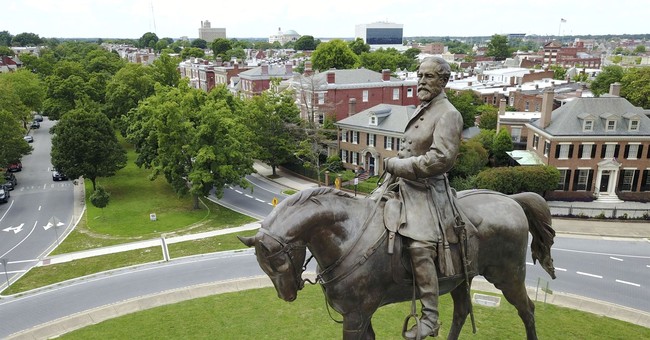
Article by Walter E. Williams in "Townhall":
The Confederacy has been the excuse for some of today's rioting, property destruction and grossly uninformed statements. Among the latter is the testimony before the House Armed Services Committee by the Chairman of the Joint Chiefs of Staff General Mark Milley in favor of renaming Confederate-named military bases. He said: "The Confederacy, the American Civil War, was fought, and it was an act of rebellion. It was an act of treason, at the time, against the Union, against the Stars and Stripes, against the U.S. Constitution."
There are a few facts about our founding that should be acknowledged. Let's start at the beginning, namely the American War of Independence (1775-1783), a war between Great Britain and its 13 colonies, which declared independence in July 1776. The peace agreement that ended the war is known as the Treaty of Paris signed by Benjamin Franklin, John Adams, John Jay, and Henry Laurens and by British Commissioner Richard Oswald on Sept. 3, 1783. Article I of the Treaty held that "New Hampshire, Massachusetts Bay, Rhode Island and Providence Plantations, Connecticut, New York, New Jersey, Pennsylvania, Delaware, Maryland, Virginia, North Carolina, South Carolina and Georgia, to be free sovereign and Independent States."
Delegates from these states met in Philadelphia in 1787 to form a union. During the Philadelphia convention, a proposal was made to permit the federal government to suppress a seceding state. James Madison, the Father of the Constitution, rejected it. Minutes from the debate paraphrased his opinion: "A union of the states containing such an ingredient [would] provide for its own destruction. The use of force against a state would look more like a declaration of war than an infliction of punishment and would probably be considered by the party attacked as a dissolution of all previous compacts by which it might be bound."
Most Americans do not know that the first secessionist movement started in New England. Many New Englanders were infuriated by President Thomas Jefferson's Louisiana Purchase in 1803, which they saw as an unconstitutional act. Timothy Pickering of Massachusetts, who was George Washington's secretary of war and secretary of state, led the movement. He said, "The Eastern states must and will dissolve the union and form a separate government." Other prominent Americans such as John Quincy Adams, Elbridge Gerry, Fisher Ames, Josiah Quincy III, and Joseph Story shared his call for secession. While the New England secessionist movement was strong, it failed to garner support at the 1814-15 Hartford Convention.
https://townhall.com/columnists/walterewilliams/2020/07/22/historical-ignorance-and-confederate-generals-n2572772
